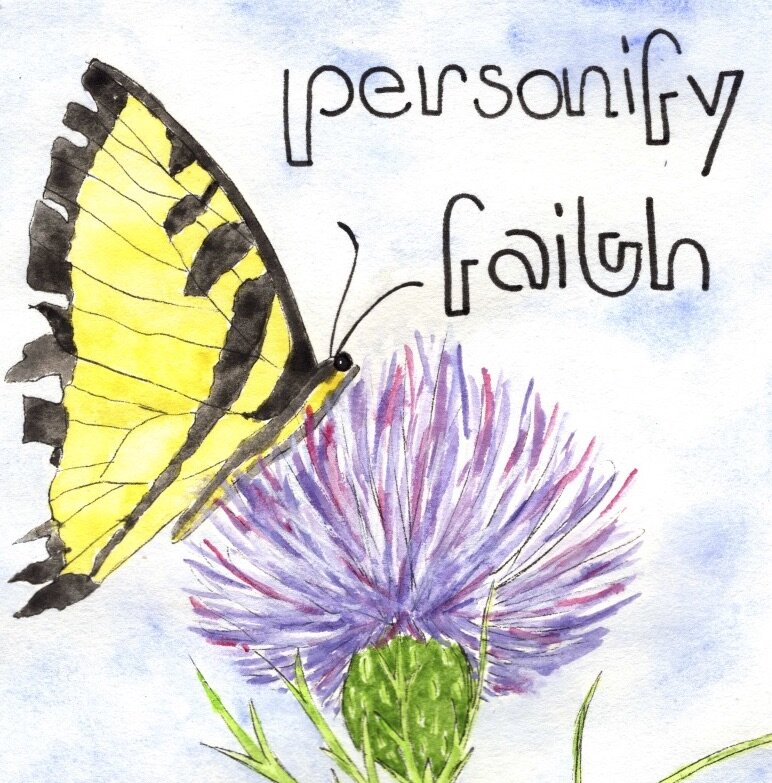Personify Faith Introduction
Exile. Diaspora. Enslavement. Desert Caves. Sacking of the Monasteries. Schisms. Wars. Authoritarian Governments. Natural Disasters. Plague. Throughout history, the people of God have had their “normal” worship routines disrupted in many ways. The Israelites spent a generation in exile in Babylon. Early Christians met secretly in homes fearing Roman persecution. European religious wars in the 16th and 17th centuries sent both Protestant and Catholic groups underground at different times and places. Even today, Christians in parts of the world are limited in their worship due to authoritarian governments. As an American Christian, though, you may never have known of a time when you could not simply walk into a church building on any and every Sunday. Maybe your church had been closed for a few weeks due to fire or sickness or natural disaster, but few of us have experienced this kind of long-lasting removal from the physical presence of our corporate worship. The COVID-19 pandemic is upending our sense of normalcy at every turn. As I write this, my own school-age children are Zoom-ing into a remote band class and preparing for a PE yoga workout from our house. Strange times indeed.
For some of us, we may feel untethered, like a balloon floating from place to place at the mercy of the wind. Set adrift, we miss the security of our home base, our church gathering, to re-establish our connection to God each week. We have depended on this time to keep us where we need to be spiritually. Truth be told, we have probably relied on the consistency of small groups and corporate worship to nourish our souls on a weekly basis and not had to assume much agency on our own. Sure, we may have our morning quiet time of study and prayer, but are we seeing spiritual formation in a true and present way in our daily lives? I have recognized myself often as a “lazy” Christian—willing to get a weekly spiritual “high” on Sundays but not translating that experience into alternative ways of living the other six days. Worship is vitally important, but the living of our lives as a testimony to God is also crucial. Reading the Bible is important, but putting its primary teachings into practice is paramount. I have often been a “head” Christian (wanting to know and learn more), but I have not been a good “heart” Christian (truly changing my ways in how I live). My hope is that we can learn together new ways to “re-tether” and “reconnect” our hearts to God, which will hopefully serve us well beyond this global pandemic.
Over the next several weeks, we are going to examine several paths to spiritual formation that we may often overlook or even relegate to only one season of the year (such as fasting during Lent). All these practices are designed to be done either alone or with your family. Each week I will overview a new topic--a way to “personify faith.” We want it to be clear to the world that we are people of faith. The study is organized with three main parts each week: a day of preparation, a day of action, and a day of reflection. The first day will be a day of study for you with background about the topic. On this day, we will investigate some of the scriptural background of this discipline in faith formation. We will examine what great authors through history have said about the topic. We will look at people of faith that have embodied this characteristic as well. The next day of study will be a day of action. On this day, you will be given a series of options to experience the spiritual practice. Choose an activity and complete it faithfully and to the best of your ability. Finally, on the third day of study, you are asked to reflect upon your experience and evaluate its meaning and ability to shape your life. Before we begin the next topic, we will share our findings of the week and reflect together on the meaning of this practice. Not all practices will resonate with you in the same way during this season of your life. As a community of faith, we will learn from each other and urge each other forward in our relationship with God through Christ. Hopefully, we can be vulnerable and share our weaknesses as well as our successes. The key here is to open yourself to new possibilities and seek God in the context we are in rather than the one we WISH we were in. As Renita Weems explains, “this is the spiritual journey, learning how to live in the meantime, between the last time you heard from God and the next time you hear from God.” My prayer is that this study will help you find new ways of listening and responding.
